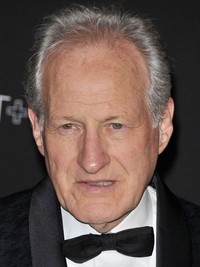Michael Mann

Entering the entertainment industry as a television writer, Michael Mann went on to become one of Hollywood's leading directors. Born on February 5, 1943 in Chicago, IL, Mann attended the University of Wisconsin, Madison, where he studied English literature, and discovered filmmaking when the school began offering courses on cinema history and theory. Inspired by the work of Stanley Kubrick, he attended the London Film School. After a short stint as a documentary and commercial director, he made an experimental short film, "Jaunpuri" (1971), which won the Jury Prize at that year's Cannes Film Festival. Returning to the United States, he moved to Los Angeles and eventually began working as a writer on shows like "Bronk (CBS, 1975-76), "Starsky and Hutch" (ABC, 1975-79) and "Vega$" (ABC, 1978-1981). Mann returned to the director's chair with the made-for-television movie, "The Jericho Mile" (ABC, 1979), which earned him an Emmy Award for writing and was released theatrically abroad. Mann made his feature debut as a director with "Thief" (1981), starring James Caan as a professional safecracker who decides to take on one last job before entering society as a law-abiding citizen. After the commercial and critical failure of "The Keep" (1983) which grafted German Expressionist techniques on a story that straddled the horror and war genres, Mann returned to television, serving as executive producer on "Miami Vice" (NBC, 1984-1990). Though "Miami Vice" was a big ratings winner, many critics preferred his next effort, "Crime Story" (NBC, 1986-88), a period epic set in 1960s Chicago and Las Vegas. Mann served as executive producer, writer and director on "L.A. Takedown" (NBC, 1989), a television movie pilot about a dogged Los Angeles detective (Scott Plank) struggling to catch up to a crew of professional criminals who always stay one step ahead. Though the movie failed to become a series, it did serve as the foundation for Mann's later film, "Heat" (1995). Still in television mode, Mann was executive producer on the Emmy-winning docudrama, "Drug Wars: The Camarena Story" (NBC, 1990) and its sequel, "Drug Wars: The Cocaine Cartel" (NBC, 1992). In a return to the big screen as director, Mann took a more hands-on approach with his features, opting to also produce "Manhunter" (1986), a grim and disturbing psychological thriller that marked the screen debut of the celebrated cannibalistic psychiatrist, Dr. Hannibal Lecter (played by Brian Cox). Mann followed with a thoughtfully revisionist adaptation of James Fenimore Cooper's novel "The Last of the Mohicans" (1992), which he co-wrote with Christopher Crowe. Mann staked out more familiar territory with "Heat" (1995), a crime drama promoted for its landmark pairing of two American acting titans, Robert De Niro and Al Pacino, who were both in "The Godfather, Part II" (1974), but never shared screen time. Mann mined recent history and personal connections for his next project, "The Insider" (1999), picking the brain of fellow Wisconsin grad Lowell Bergman (Pacino), an investigative journalist in the middle of a firestorm over the refusal by CBS to air a "60 Minutes" segment featuring Brown & Williamson research scientist-turned-whistleblower, Jeffrey Wigand (Russell Crowe). The film earned Mann the best reviews of his career, as well as three Academy Award nominations for Best Picture, Best Screenplay and Best Director. Mann returned to the big screen two years later with "Ali" (2001), the biopic of boxer Muhammad Ali (Will Smith), tracing the decade between the champion's defeat of Sonny Liston in 1964 and his 1974 comeback fight in Zaire against George Foreman, known as the Rumble in the Jungle. Mann followed up "Ali " with the crime thriller "Collateral" (2004), which focused on a Los Angeles cabbie (Jaime Foxx) who has the unfortunate luck of picking up a hit man (Tom Cruise) in town to perform a job. After Oscar and Golden Globe nominations for his work as producer on "The Aviator" (2004), Mann got his chance to helm "Miami Vice" (2006) as a feature. Returning into producer mode, Mann helped shepherd "The Kingdom" (2007) a dark and gritty political thriller directed by Peter Berg about an FBI special agent (Foxx) investigating a terrorist attack on American forces inside Saudi Arabia. He reunited with Will Smith for the comic book comedy, "Hancock" (2008), in which the actor played a hard-drinking superhero grown disillusioned with a public that has fallen out of love with him. Back in the director's chair, Mann helmed "Public Enemies" (2009), a period crime thriller that looked at the career of bank robber John Dillinger (Johnny Depp). Mann put on his producer's hat once again for the crime drama "Texas Killing Fields" (2011), helmed by his daughter, Ami Canaan Mann, in her debut as a feature film director. Also that year, he co-produced and directed the pilot episode for "Luck" (HBO, 2011-12), an ensemble drama starring Dustin Hoffman and Nick Nolte, and served as executive producer of the documentary miniseries "Witness" (HBO 2012) about the work of photojournalists in warzones. Mann next returned to the big screen with the international cybersecurity thriller "Blackhat" (2015), which he wrote and directed. Mann next served as executive producer for "Ford v Ferrari" (2019), a biopic of American car designer Carroll Shelby (Matt Damon) and driver Ken Miles (Christian Bale) and their attempt to win the grueling 24-hour Le Mans race in 1966.